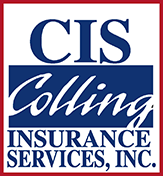Closing costs can add a significant chunk to the amount of money you need to put up when you buy a home, and several of the closing costs are related to insurance. Knowing what these costs will be can help you save the right amount of money for your home closing and avoid unpleasant surprises when your statement of estimated closing costs arrives.
One type of insurance that you need is title insurance. You usually purchase this through the title company that handles the closing when you’re buying a house. Title insurance protects you and the lender from problems that come up in the future with regard to the title. Costs vary, but the average homeowner in Colorado pays about $700 at closing for the lender and owner title insurance policies.
The other insurance related closing costs you’ll pay are for homeowners insurance. Lenders require this to protect their security in the home, and of course, the policy also protects you as the homeowner. Costs vary depending on the value of your home and possessions, but the average Colorado policy costs $800 to $900 per year. You need to pay for the first full year at closing. In addition, many lenders require you to deposit another 3 months of homeowners insurance payments into your escrow account at closing.
Between these two insurance related closing costs, most homeowners will need to bring about $2,000 to closing when buying a house. Shopping around for the best deal on homeowners insurance can help lower your costs, so contact a Colorado insurance agent to start getting quotes today. The earlier you start, the more time you will have to evaluate your options and get a policy in place before your closing date.




 Email an Agent
Email an Agent


 Click to Call
Click to Call Get Directions
Get Directions